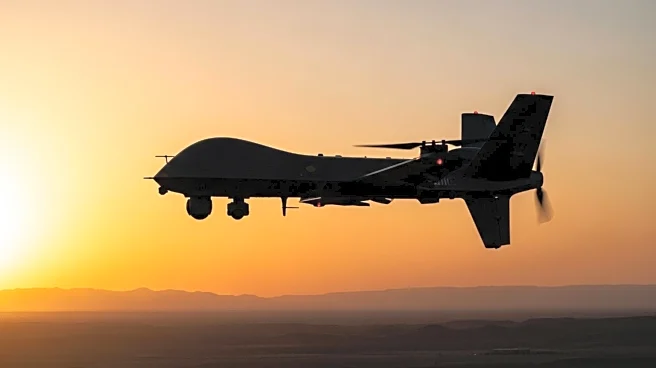What is the story about?
What's Happening?
Two years after the October 7, 2023 attacks, Israel faces the challenge of transforming the lessons learned into a sustainable vision for its security, society, diplomacy, and identity. The attacks exposed systemic failures in defense and civil preparedness, highlighting the need for a shift from static defense to smart defense with sustained offensive initiatives. Strengthening the interface between military and civilian fronts and addressing civil gaps are critical for rebuilding trust and resilience.
Why It's Important?
The October 7 attacks were a strategic, moral, and cognitive earthquake for Israel, revealing vulnerabilities in its defense and civil infrastructure. Addressing these issues is crucial for Israel's long-term security and stability. The attacks also underscored the interconnectedness of the Palestinian arena with regional dynamics involving Iran, Hezbollah, Hamas, and other actors. A comprehensive approach to security and diplomacy is necessary to dismantle terrorist capabilities and foster cooperation with Arab states.
What's Next?
Israel must adopt an integrated security-diplomatic approach, focusing on dismantling terrorist capabilities in Gaza while offering civilian opportunities. Strengthening pragmatic elements within the Palestinian Authority and deepening cooperation with Arab states through the Abraham Accords are key steps. Additionally, Israel needs to craft a national narrative strategy to counter disinformation and maintain moral clarity in its defense efforts.
Beyond the Headlines
The challenge for Israel extends beyond military and political realms to moral considerations. Upholding ethical warfare principles and minimizing harm to noncombatants are essential for maintaining legitimacy and resilience. The attacks also highlighted the importance of civil preparedness and the need for a renewed social contract with clear responsibilities and transparency in emergencies.
















